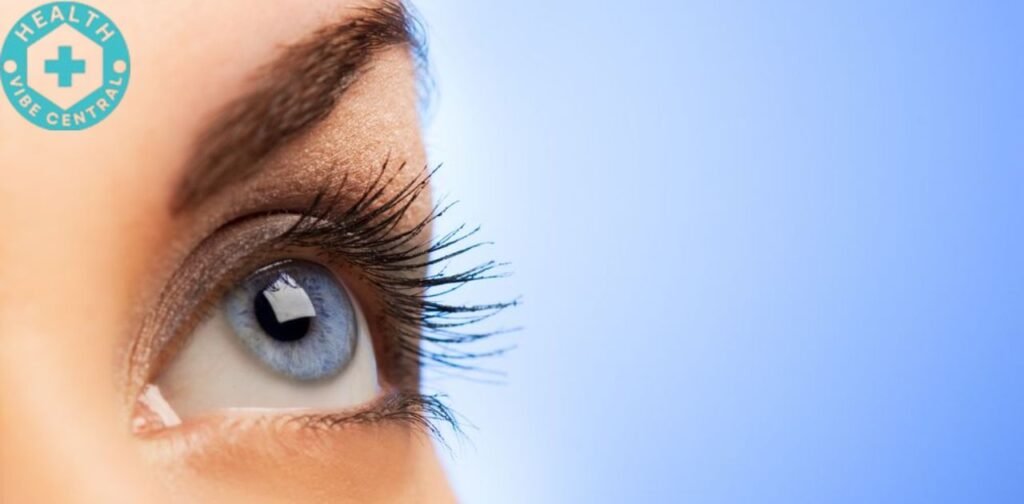
Your eyes serve both as spiritual observatories and functional devices to maintain daily operation according to Eye Health Tips. Most individuals fail to notice their eyes despite the fact that conditions like myopia, hyperopia and astigmatism develop when vision becomes severely impaired. The following article provides detailed instructions for both healthy eyes maintenance and strategies for stopping and avoiding typical vision issues.
These specific tips require practice along with planning and will help lower the risk of developing severe vision illnesses such as cataracts, macular degeneration and dry eyes. The following 7 effective methods found in Eye Health Tips assist in eye strengthening and help protect your vision for an extended period of time.
1. Eat a Nutrient-Rich Diet for Optimal Eye Health
Understanding the Role of Nutrition in Vision
Eyes function in a manner equivalent to the saying “You are what you eat,” as a variety of Eye Health Tips relate to physical and health problems. The human body needs special eye nourishment to maintain both functionality and health in these vital organs. The eye disease-fighting antioxidants along with other nutrients help humans combat free radicals.
Key Nutrients for Eye Health:
Healthy vision requires Vitamin A that enters rhodopsin protein structure to help the retina receive light. The absence of adequate nutrients in the body leads to Nyctalopia which affects night vision- . The eye benefits from two carotenoid compounds that defend it by blocking blue light and serve as retina antioxidants.
- The research on nutritional compounds showed that greater consumption leads to decreased AMD development risk. Dry eye syndrome treatment requires Omega-3 Fatty Acid intake because these substances provide abundant levels in the retina to reduce inflammation.
- Vitamin C and E combine antioxidants which protect eyes from radical agents while safeguarding them from such damage. Eating this type of food maintains a protective impact on cataract development based on the recommendations provided by Eye Health Tips .
Foods for Healthy Eyes:
Lutein along with zeaxanthin exists in spinach and kale and collards which are designated as easy green vegetables.- The variety of omega-3 fatty acids can be found in salmon together with tunas and mackerel and a number of other fish species.
- The vitamin C found within citrus fruits can be located in oranges together with lemons and grape fruits.
- Eggs: An excellent source for lutein and zeaxanthin, and also a good source of vitamin E. Vitamin E along with omega-3 fatty acids is abundant in both almonds and walnuts.
Actionable Steps:
- Include leafy greens in daily meals: Mix spinach with yogurt or to enhance the taste take kale for a salad.
- Eat fish twice a week: If you don’t even like fish, then a daily dose Eye Health Tips of omega-3 will serve you right.
- Snack on nuts: Almonds are an easily portable nut which also has numerous benefits to the eyes.
2. Take Regular Breaks from Screens to Prevent Digital Eye Strain
The Digital Age and Your Eyes
Mobile phones and computers and tablets have resulted in digital eye strain also known as computer vision syndrome becoming extremely common. The group of symptoms includes headaches as well as photophobia and eye dilation with neck and shoulder muscle discomfort.
Research indicates that Americans dedicate more than 7 hours of their daily routine to using some sort of screen device. The duration of your television or computer usage will put stress on your eyes that leads to eventual discomfort.
How Screens Impact Your Eyes:
Screen viewing prompts people to stop blinking their eyes which results in dryness and irritation.- The method provided by Blue Lightincludes observing distant objects at a minimum 20 feet distance during a 20-second session. Working with a computer becomes more comfortable due to this technique because it provides your eyes with break time for relaxation.
Actionable Steps:
- Adjust your screen settings: Also, enlarging text and decreasing the level of brightness to the qualified level is recommended.
- Use blue light-blocking glasses: It also reported that these glasses block blue light and can minimize the impact of spending much time on the screen.
- Create a comfortable workspace: Work the screen at a distance of 20 to 24 inches from eyes and maintain the top of the screen slightly above or at eye height.
3. Wear Sunglasses with UV Protection to Safeguard Your Vision
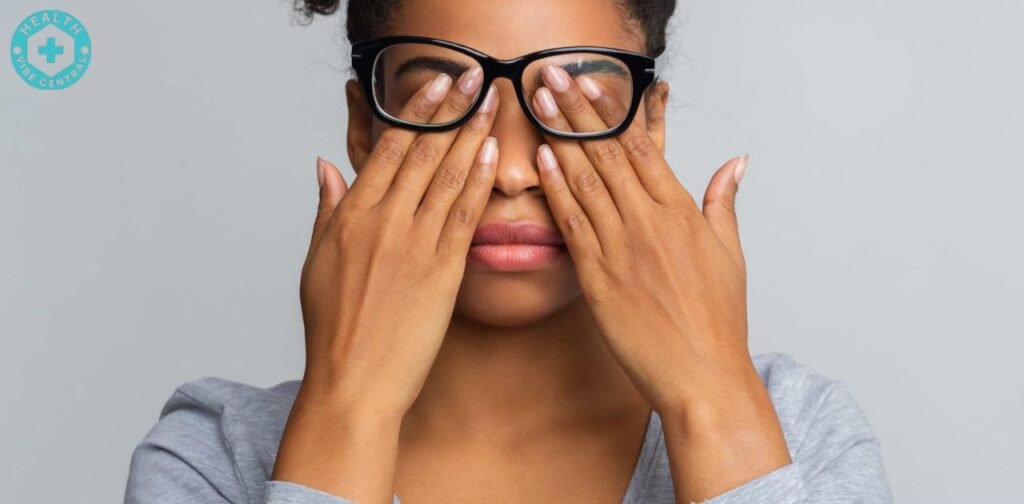
Why UV Protection Matters
Both the human skin and eyes need protection against sun exposure. The eyes face harmful effects from UV radiation which leads to three major conditions such as cataracts and macular degeneration alongside eyelid cancer development. The danger period for eye protection occurs between 10.00 a.m and 4.00 p.m.
Types of UV Rays:
Standard sunglasses differ significantly from fashionable models. The label UV400, UV 100% or 100% UVA/UVB protection should be checked to identify suitable sun glasses. Both wraparound designs provide maximum security features that block rays from accessing the glasses through their sides.
Choosing the Right Sunglasses
People should always wear sunglasses throughout every season including days that appear cloudy because UVA and UVB rays infiltrate eyes without any exceptions. Polarized sunglasses reduce eye-light exposure because they filter out excessive illumination therefore they are suitable for driving cars and sightseeing near water areas.
Actionable Steps:
. The Consequence of Water on Eyes
Dry eye syndrome exists as two possible symptoms: it affects tear production and speeds up tear evaporation rates. Eye itching combined with redness along with the experience of sand-like particles in the eyes develops as a result. The health of your body suffers when dehydrated which makes proper fluid intake necessary to enable eye moisture through tear production.
4. Stay Hydrated to Combat Dry Eyes
The Importance of Hydration for Eye Health
The condition known as dry eye syndrome develops when the tear production becomes insufficient or when tears disappear rapidly from the eyes. Dry eye syndrome causes eye irritation together with redness and produces a gritty feeling in eyes. The proper hydration of your body enables your tear glands to operate efficiently for proper eye moisture which provides comfort.
Signs of Dry Eye Syndrome:
Staying Hydrated
Trouble in using contact lenses
Blurred vision or eye fatigue
The same hydration benefits which benefit your body equally help your eyes. Your body uses water to generate tear fluids that maintain your eye moisture. People over 18 years need to consume eight water glasses per day with at least three of these glasses consisting of green leafy vegetables.
Actionable Steps:
- Having access to water through a bottle can create the opportunity for you to drink water during the day.
- The daily water consumption benefits from meals that contain hydrating ingredients including cucumbers and watermelons along with other fruits and vegetables which contain significant water content.
5. Get Regular Eye Check-ups to Detect Problems Early
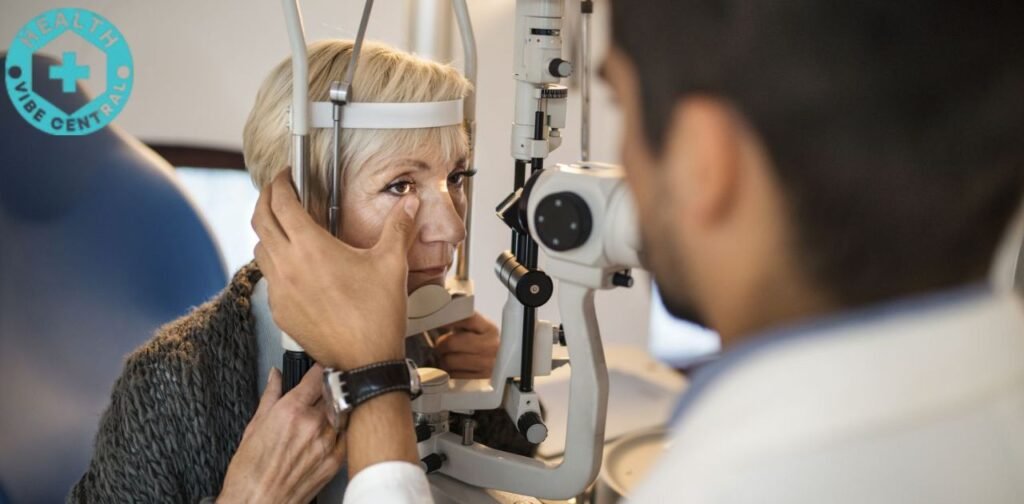
The Importance of Routine Eye Exams
The major eye diseases enter without visible indications making their detection difficult during their initial stages. Regular eye check ups remain essential because they help resolve minor issues which become complex when left untreated. Patients with lack of vision and glaucoma and diabetic retinopathy and macular degeneration do not exhibit noticeable symptoms at the start but remain treatable during this early stage. A thorough eye assessment at an optometry clinic or ophthalmology practice allows doctors to examine patients’ eyes.
- Ocular disorders (for example, myopia, hyperopia, astigmatism).
- Essential vision impairment ailments (such as glaucoma, cataracts, diabetic retinopathy)
- The inspection of the retina and optic nerve for potential injuries constitutes general eye health examination.
How Often Should You Get an Eye Exam?
- People between 18 and 60 years need annual routine eye examinations unless they have normal vision; in this case they should receive exams every two years.
- The risk of eye disease increases with time since yearly assessments follow medical procedures for all other health conditions for adults above sixty.
- School-aged children need eye assessments before starting their first grade and continuing testing every two years following that assessment.
Actionable Steps:
Fine, eye examinations do not reveal signs except through the emergence of complications- A visit to the doctor should happen immediately when you observe vision changes including when objects appear blurry or become out of focus.
6. Quit Smoking to Protect Your Eyes
Smoking’s Impact on Eye Health
Your eyes cannot escape the dangers presented by tobacco because it poses threats to most organs in your body. People who smoke face an elevated probability to develop critical eye problems such as: Cataracts form more often in smokers who develop this condition at two times the rate experienced by nonsmokers.
The eye lens becomes transparent when affected by cataracts leading to gradually worse vision before finally resulting in complete blindness.
Age-related Macular Degeneration (AMD) develops as a disease in the macula which constitutes the region of retina that controls central vision.
Smoking behavior results in a threefold elevated danger of developing AMD which poses a threat to vision. Uveitis represents an inflammatory condition within the middle tissue layer of the human eye.
7. Maintain a Healthy Weight to Prevent Vision Problems
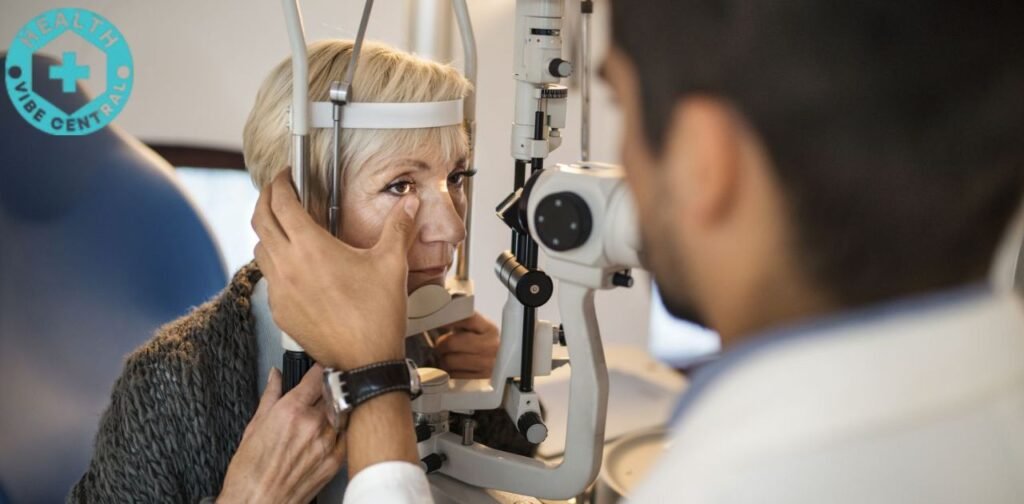
The Link Between Weight and Eye Health
Being over or under the required weight can cause a number of health complications including the eyes. Being overweight or obese increases the risk of developing several systemic conditions that can affect your vision, such as
:
- Type 2 Diabetes: Diabetic retinopathy, which affects the blood vessels of the retina, is one of the biggest threats to vision among adults. Therefore, uncontrolled diabetes can also lead to cataracts and glaucoma.
- Hypertension (High Blood Pressure): The blood vessels in the eyes tend to get Eye Health Tips damaged due to high blood pressure, resulting in hypertensive retinopathy. This condition can lead to the poor vision and can end up losing one’s vision for a permanent moment.
- Sleep Apnea: Sleep apnea is prompted by obesity, and this in turn can harm Eye Health Tips the optic nerve in people whose blood oxygen levels rise and fall during sleep.
Managing Your Weight for Better Eye Health
Appropriate intake of foods containing vitamins and other nutrients in fruits, vegetables and taking whole grains as well as lean proteins and engaging in regular exercises may decrease your chance of developing such eye diseases.
Actionable Steps:
- You should engage in physical exercise that includes thirty minutes of moderate intensity activity throughout five days of the week as per Eye Health Tips . Getting exercise means practicing multiple activities which include walking cycling swimming and yoga along with others.
- Checking your Body Mass Index continuously remains crucial so that you can prevent both underweight and overweight conditions. Research using Body Mass Index showed health results occur when BMI rates fall between 18.5 and 24.9. Limit consumption of processed foods:
- Delete Eye Health Tips foods with high processing as well as sugar and refined flour since such choices promote weight gain and invigorate inflammation.
Bonus Tip: Protect Your Eyes During Physical Activity
Eye Injuries and Prevention
Most individuals do not appreciate that movements during physical activities particularly contact sports are a threat to eyes. Eye injuries in connection to sports can be regarded as rather frequent and the majority Eye Health Tips of them, if not being treated properly, can contribute to the appearance of long-term impairments in vision. Any sport-like movements like basketball, racquet events and even cycling can cause impact related injuries, falls, or even objects flying towards the cyclist.
How to Prevent Eye Injuries During Sports:
- The protective eyewear must feature polycarbonate lenses because their material stands 10 times stronger against other plastic materials. Wearing a helmet with a face shield protects eyes against flying balls or pucks
- Such protective gear is essential for hockey and baseball gameplay. fast sports activities including skiing or cycling require extra diligence because both strong winds and flying objects are potential eye hazards.
- To receive extra eye protection before outdoor activities you should wear either sunglasses or goggles.
Actionable Steps:
- invest in quality eye protection: In case you are a sport person, ensure you purchase quality goggles specifically for protection from various sports.
- Ensure a proper fit: Ensure that the protective eyewear that you wear Eye Health Tips accommodates your face well; do not wear it loosely because it may pose the risk of moving around during any exercises.
The Importance of Sleep for Eye Health
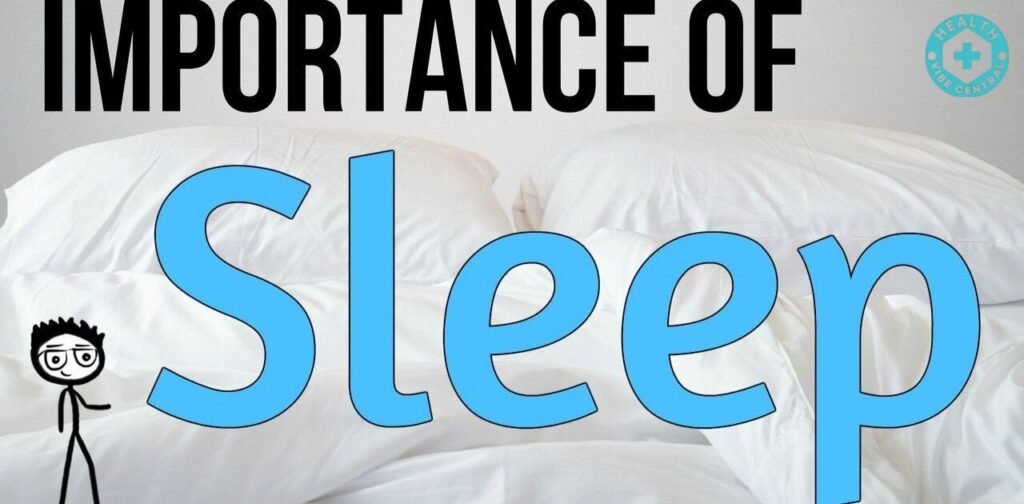
It is vital to ensure that you have adequate sleep so as to be healthy, but for your eyes that is very wise. At night your eyes get a chance to relax from the stress of, for instance, working on a computer or doing close work all day. The effects Eye Health Tips include eye strain, extinguish, eye twitches, and in some cases one may experience blurred vision due to lack of sleep.
How Sleep Impacts Your Vision:
- Reduces eye strain: Rest aids in reducing stress that accumulates during the day, more so for those who work behind a screen for most part of the day.
- Prevents dry eyes: As you sleep, the eyes also open and allow the moisture to restore the eye surface thereby preventing instances of dryness on the eyes.
- Improves focus and reaction time: Sleeping well is good for the eyes since it relieves eye tiredness and draws focus to matters such as good eye coordination during tasks that involve concentration such as driving.
Actionable Steps:
- Aim for 7-9 hours of sleep each night: Regular rest for the eyes must also include the importance of sleeping as one of the important ways to rest the eyes.
- Develop a sleep routine: Standing: people who go to bed and wake up at the same time maintain a consistent cycle in their body.
- Limit screen time before bed: Staring at screens may result in production of blue light that affects ones natural sleep cycle and thus it is advised not to use our electronics before going to bed at least an hour.
Conclusion: Commit to Lifelong Eye Health
Your eyes are used in perceiving the environment and the surrounding reality. If you begin to take steps to help preserve them now, many of the standard vision problems people will experience as they grow older can potentially be avoided. Adopting a proper diet and avoiding foods that are a rich source of carbohydrates and proteins, donning protective sunglasses and quitting smoking are some of the decisions you make today that will work well for your eyes in the long run.